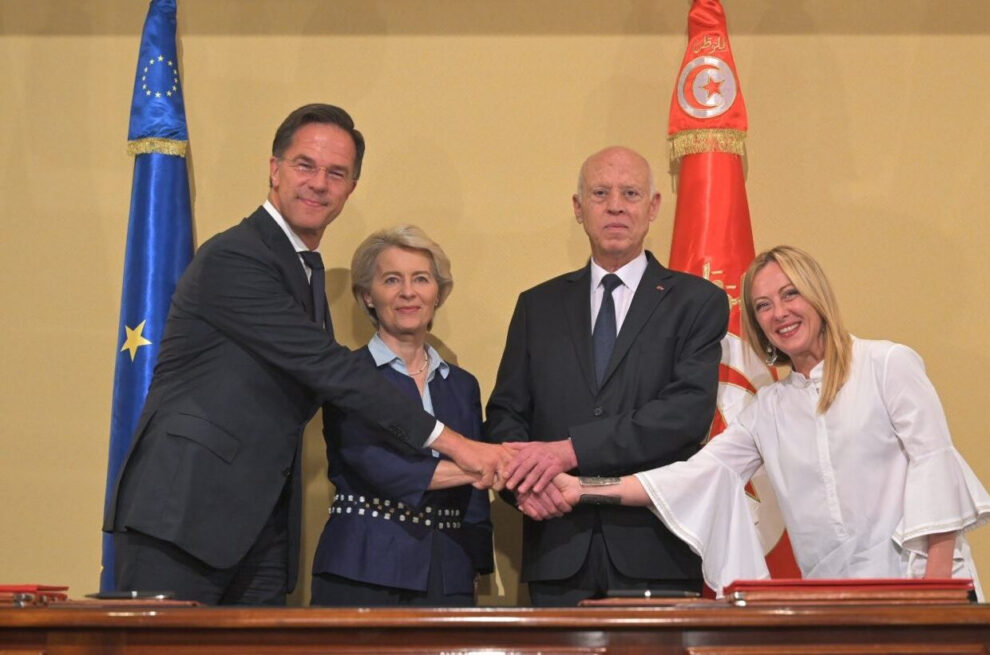Germany and 12 other European Union member states have complained about being sidelined in the rush to sign a controversial $1bn migration pact with Tunisia.
An internal federal foreign office briefing last week revealed Germany’s ire about being excluded from the Memorandum of Understanding (MoU) with Tunisian President Kais Saied.
It was signed in Tunis by European Commission President Ursula von der Leyen, Italian Prime Minister Giorgia Meloni and Dutch Prime Minister Mark Rutte in July.
Under the agreement, the EU has agreed to supply Tunisia with financial and technical support to deter migration to Europe.
The deal was in part brokered by Meloni following months of negotiations and an “international conference on development and migration” in Rome.
According to the internal briefing, the European Council, the primary forum for national governments in Brussels, and the EU’s diplomatic service were left out of negotiations.
The MoU was vaguely worded and its presentation “hasty and superficial” according to some analysts, while press questions were not allowed during the Commission’s two visits to Tunis.
The agreement was also negotiated without consultation of civil society groups and “lacks crucial human rights safeguarding”, according to Amnesty International.
The Commission’s legal counsel, Emer Finnegan, said this week that the deal may be void. In July 2016, the European Council successfully took the Commission to court when it was ajudged to have overstepped its mandate over a deal with Switzerland.
The efficacy of the Tunisia pact has been questioned following Saied’s declaration that his country would not act as Europe’s “border guards”.
The deal was struck amid a wave of violence targeting sub-Saharan Africans in Tunisia.
Tunisian security forces expelled hundreds of sub-Saharan Africans to the desert border with Libya last month after violent confrontations in Sfax. Huge numbers are reportedly still stranded in the militarised zone without water.
In February, Saied was widely criticised over incendiary comments in which he claimed that irregular migration from sub-Saharan African countries was being used to transform the demographic make-up of Tunisia.
Source: Middle East Eye









